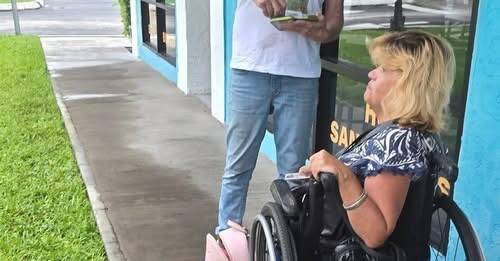
Volusia County, Florida — a region known for its vibrant small business community and entrepreneurial spirit — is now grappling with a legal crisis that threatens to unravel the very fabric of its local economy. At the heart of the storm is a lawsuit filed by Tavia Wagner against Capelly Two, LLC, operating as Country Line Saloon in DeLeon Springs. The suit alleges violations of the Americans with Disabilities Act (ADA), a landmark civil rights law designed to protect individuals with disabilities. But many in the community say the law is being misused — not to promote accessibility, but to extract financial settlements from struggling businesses.
Country Line Saloon is more than just a bar and grill. It’s a family-run establishment built with heart, grit, and a mission to serve the community. Since opening its doors, it has offered good food, live music, and a welcoming atmosphere — while creating 15 full-time jobs in a region where employment opportunities are vital. Now, that mission is under threat. The lawsuit claims technical ADA violations, but the owners say they were never given a chance to address or correct any issues before being dragged into court.
This case is emblematic of a troubling trend. Across Volusia County, small businesses — from diners and boutiques to local service providers — are increasingly finding themselves targeted by similar lawsuits. Wagner, the plaintiff in the Country Line Saloon case, has reportedly filed numerous ADA-related suits against small businesses in the area. Critics argue that these lawsuits are less about improving accessibility and more about exploiting legal loopholes for personal gain.
The economic stakes are high. Small businesses make up nearly 44% of U.S. economic activity and employ nearly half of the private workforce. In Volusia County, they are the lifeblood of local commerce, providing essential services, jobs, and community spaces. When these businesses are hit with costly legal battles — often over minor or easily fixable infractions — the consequences ripple outward. Employees lose jobs. Families lose income. Communities lose gathering places and cultural touchstones.
Legal experts and business advocates are now calling for reform. They argue that while the ADA must be upheld and respected, there must be safeguards against its misuse. One proposed solution is a “notice and cure” provision — a legal mechanism that would require plaintiffs to notify businesses of alleged violations and give them a reasonable period to make corrections before litigation can proceed. Such a system would preserve the integrity of the ADA while protecting small businesses from predatory legal tactics.
The owners of Country Line Saloon, along with a growing coalition of local entrepreneurs, are urging the United States District Court for the Middle District of Florida to dismiss the lawsuit. They are also calling on lawmakers, judges, and community leaders to take a hard look at how ADA lawsuits are being filed and adjudicated — and to ensure that justice is not just blind, but fair.
Volusia County residents are rallying behind their local businesses, organizing petitions, attending hearings, and speaking out on social media. The message is clear: accessibility and inclusion are essential, but so is protecting the livelihoods of hardworking families from legal abuse.
As this legal battle unfolds, it has become a flashpoint in a larger conversation about the balance between civil rights enforcement and economic sustainability. For Volusia County, the outcome will not only determine the fate of one saloon — it may shape the future of small business protections across the state and beyond.
Add comment
Comments